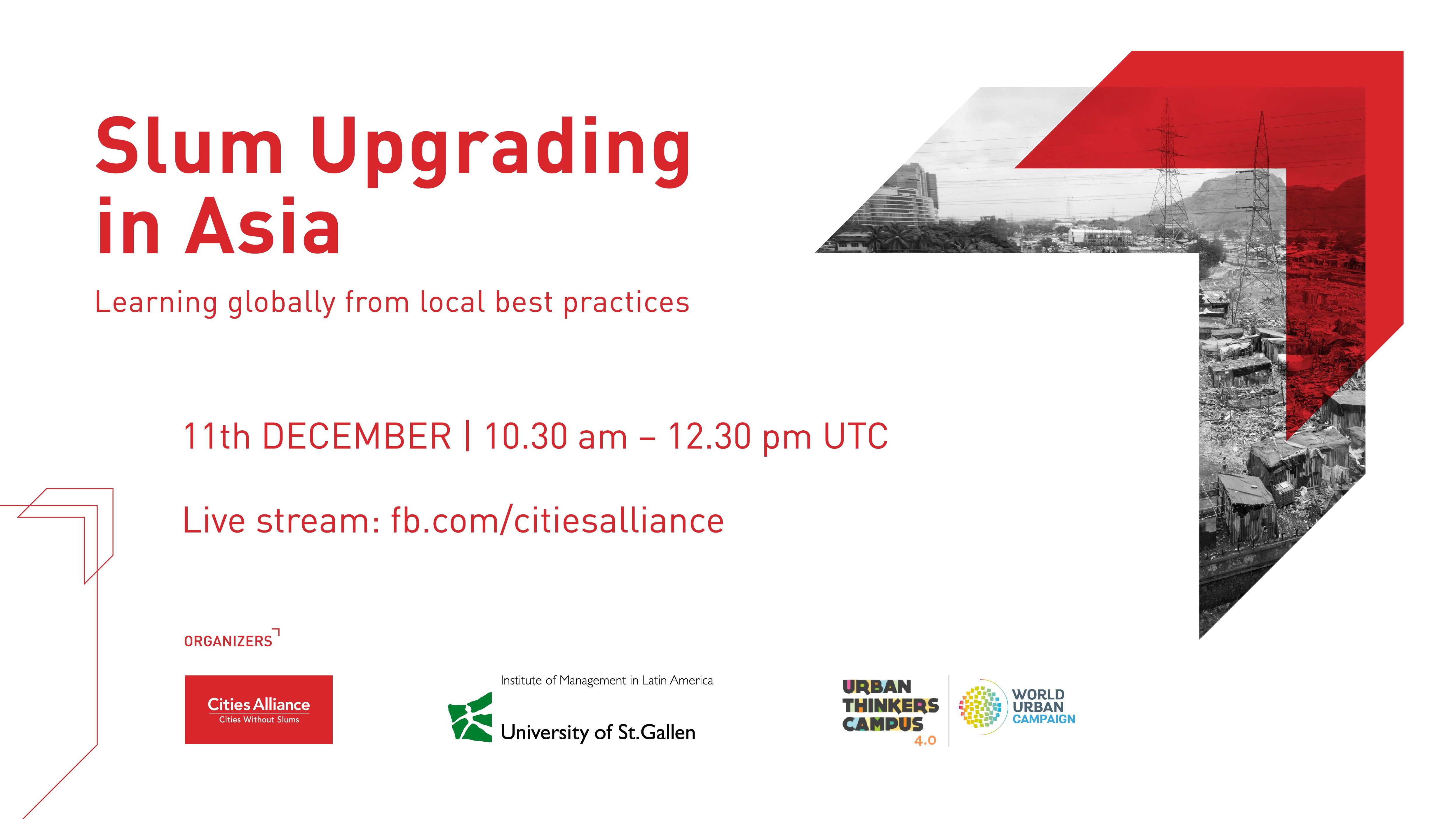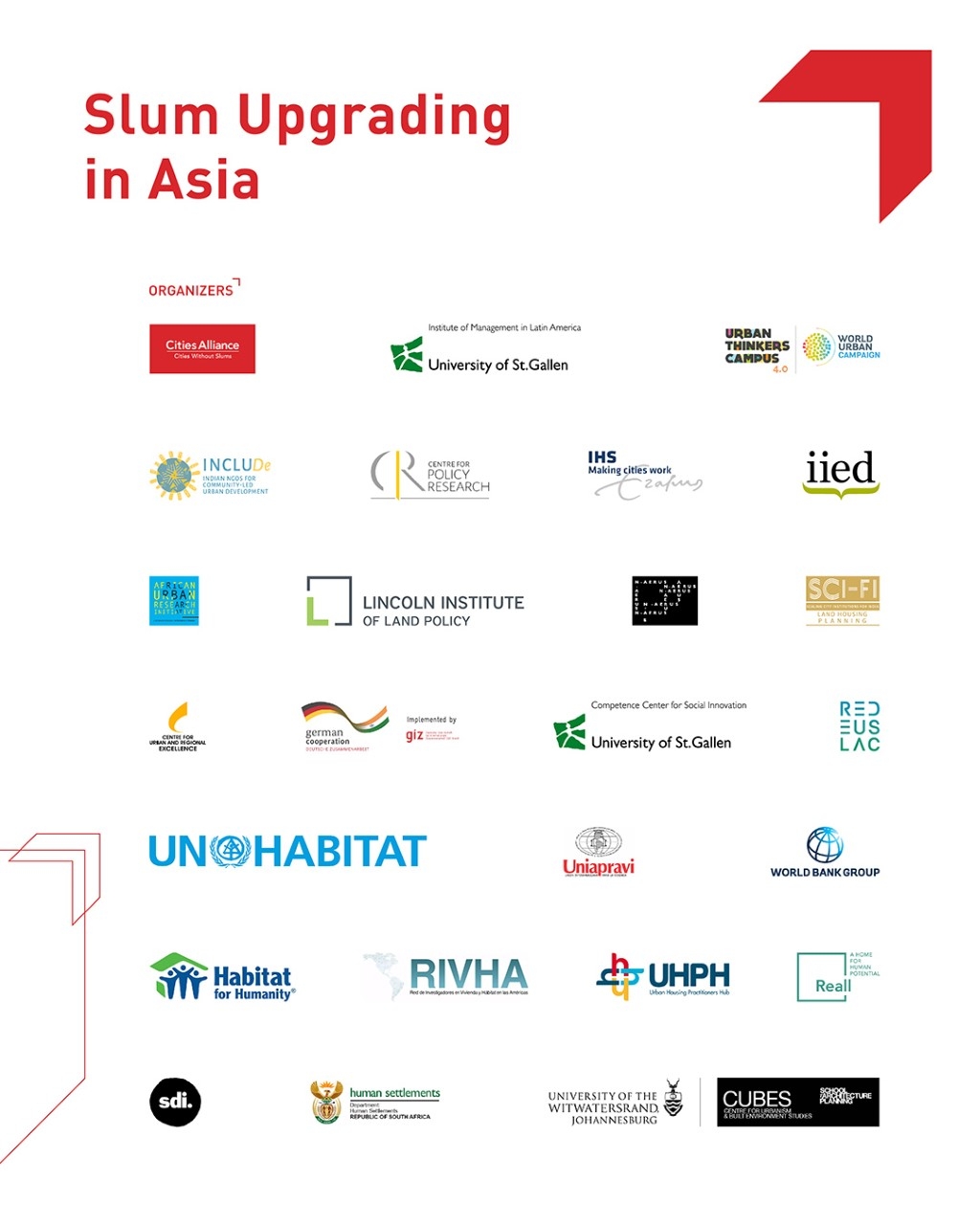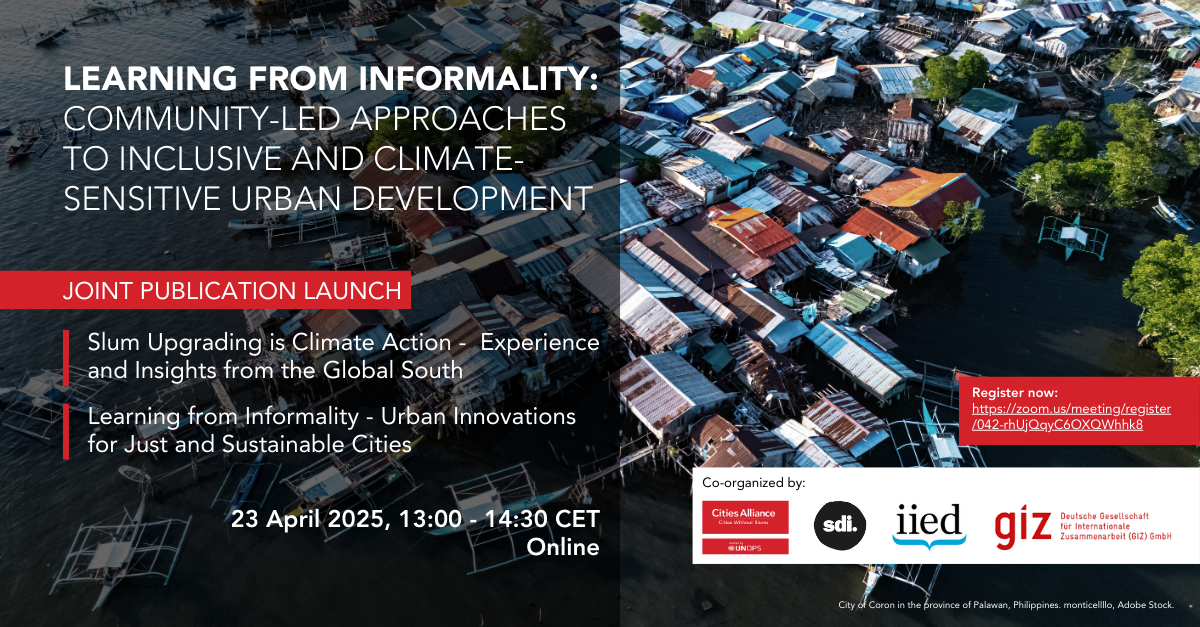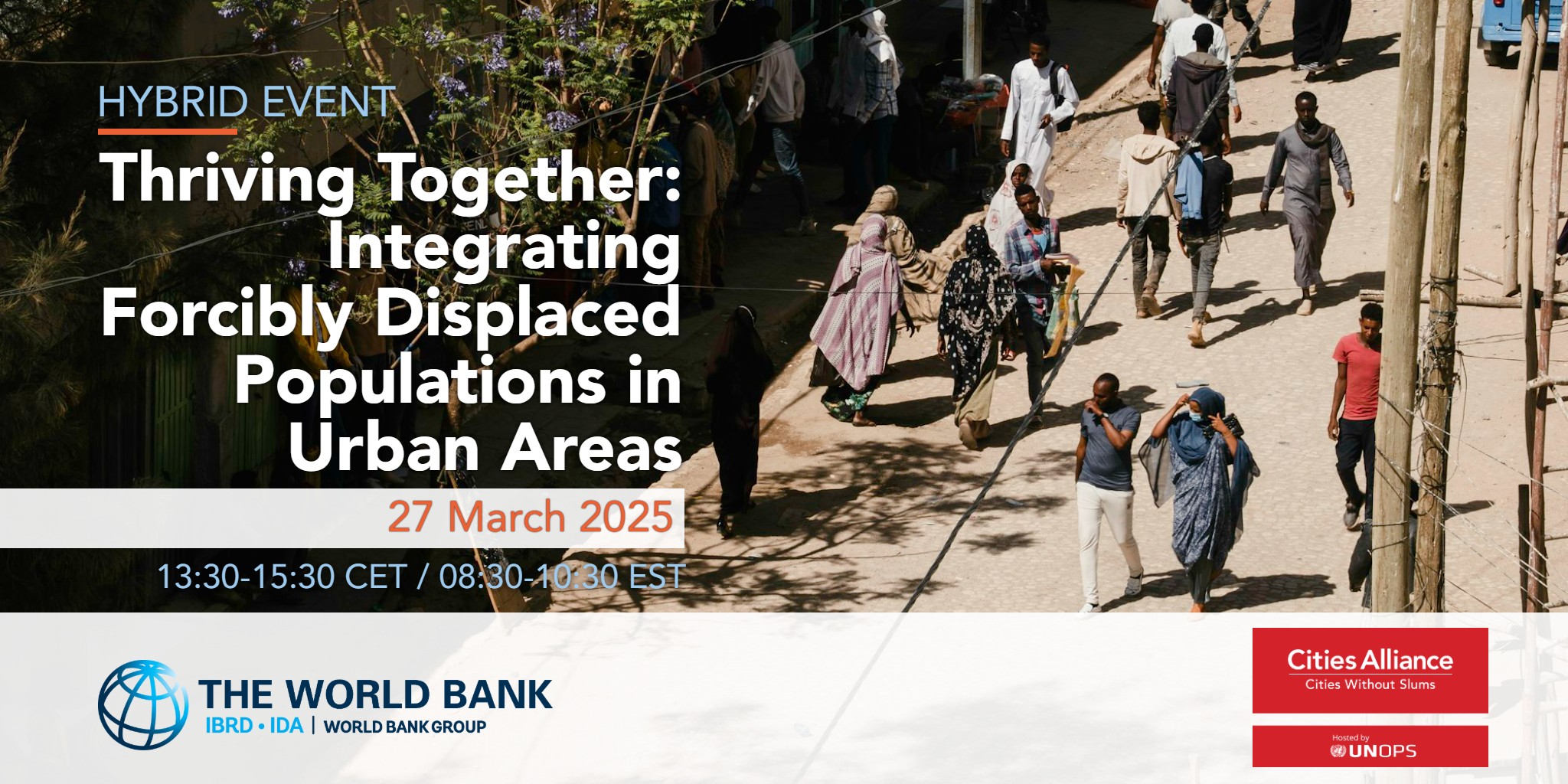- Who We Are
- How We Work
- Regional / Country Initiatives
- Legacy
- Core Themes
- Working Groups
- Portfolio & Results
- Newsroom
- Resources
Urban Thinker Campus: Slum Upgrading in Asia

Learning globally from local practices on city-wide strategies to address informality
Urban Thinkers Campus
Slum Upgrading in Asia:
Learning globally from local practices on city-wide strategies to address informality
Webinar on 11 December 2020 - 11:30 am CET/10.30am UTC
Live streaming on Facebook
The unfolding COVID-19 pandemic and its specific geographic development within city regions have brought to the forefront the socio-economic cracks of current urbanization patterns. Poor neighbourhoods and particularly dense informal settlements are disproportionally at risk of becoming contamination vectors. With the health crisis, the fundamentals of cities are again back on the discussion tables: What cities do we want to live in? And how can we best achieve them?
In order to achieve the SDG targets and overcome their fragmented nature, interventions are needed to create synergies between sectors, unlock creativity and smartly deploy resources and capacities. As it has been increasingly proved, cities are fundamental in achieving multi-sectoral interventions to tackle SDGs simultaneously. This implies working with municipalities through multi-stakeholder approaches, engaging civil society, private sector organizations, universities and multilateral institutions in the formulation of best practices about the role of cities enabling the achievement of sustainable development goals on the ground.
Among the most crucial themes that impact the daily management of municipalities addressing the pandemic, is the challenge of guaranteeing affordable housing and land, as well as the planning mechanisms that cities can develop to guarantee such rights.
As established in the New Urban Agenda, housing is at the centre of urban development and there is an urgent need to map and develop a diagnosis of informal settlements, as well as to establish adequate policies that are able to promote integration to the city and leave no one behind, as part of National Urban Policy frameworks.
Addressing these multi-disciplinary challenges implies integrating issues such as participatory multi-level governance, coordination of public policies, city-wide planning, disaster risk management, community building and resilience strategies.
This webinar will present two promising city-wide initiatives from Bangladesh, Thailand, and Indonesia that aim at improving the lives of slum dwellers and reducing the inequality in access to urban infrastructure and services. A round table shall situate these efforts within the larger challenge of the unfolding pandemic by debating ongoing adjustments to the programs and the question of how to make slum upgrading a priority in the post-COVID recovery process.
Agenda
- 10 min - General introduction on the challenges of slum upgrading in Asian cities, Mr. Ajay Suri, economist and a development expert
- 15 min – Best Practice 1: Bangladesh - James Samuel, National Director Bangladesh, Habitat for Humanity
- 15 min – Best Practice 2: Indonesia - Ibu Virgi, Ministry of National Development Planning of the Republic of Indonesia
- 15 min – Best Practice 3: Thailand - Minh Chau is the regional partner South East Asia, Asian Coalition for Housing Right
- 5 min - Final Remarks (Moderator) - Celine d’Cruz, urban development practitioner
Partners:





